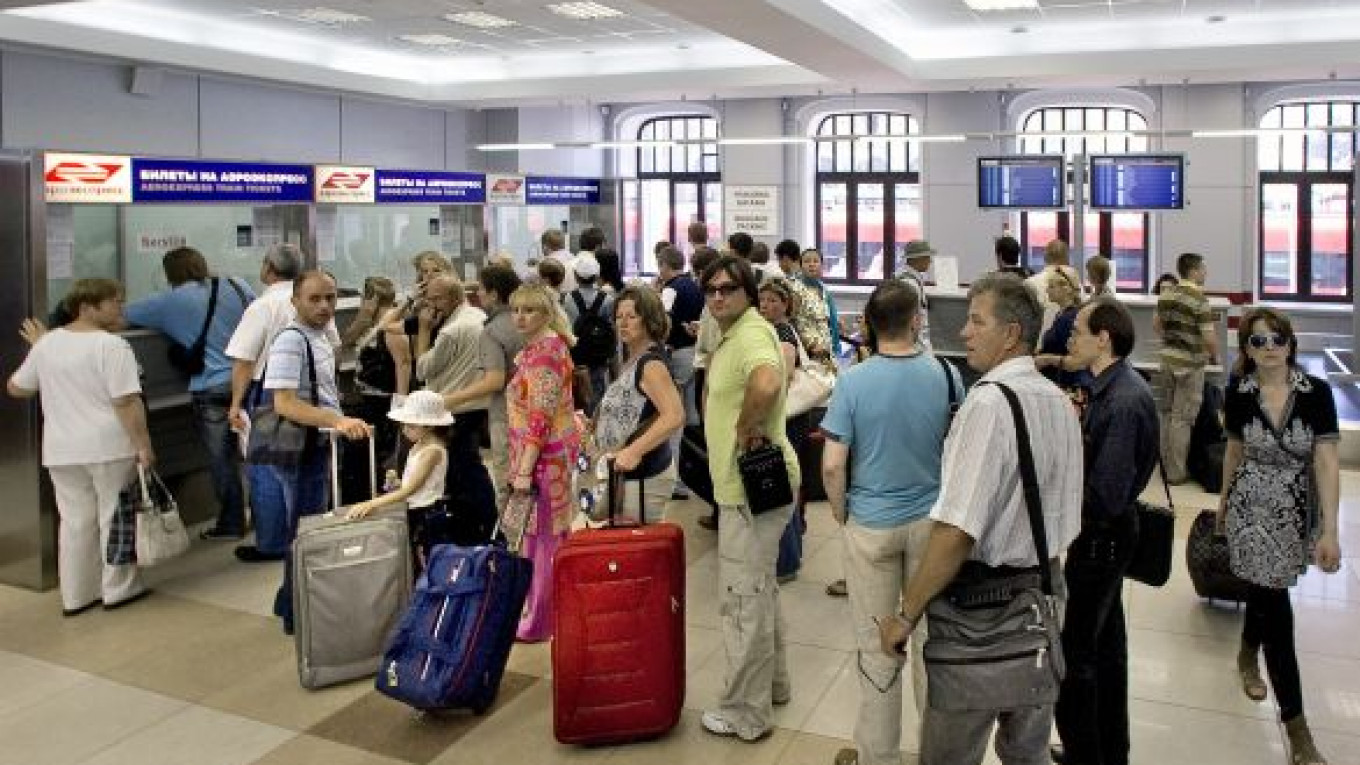Jamaica, the Caribbean island known for reggae music and white-sand beaches, aims to double tourists from Russia and add direct flights from Brazil to take advantage of emerging nations' growing wealth and stronger currencies.
Jamaican Tourism Minister Edmund Bartlett said he is heading to Russia this week to work on an agreement with Aeroflot as part of a plan to increase annual arrivals from the former Soviet nation to 3,000 from 1,500.
"We are moving into new markets, such as South America" and Eastern Europe, Bartlett, 60, said in an interview at Bloomberg's headquarters in New York. "The economies of South America are showing buoyancy in growth and the expansion of middle class in that area."
Jamaica, where tourism accounts for about 50 percent of foreign exchange revenue, is turning to developing nations to drive growth in the industry after China overtook the United States in the past five years as the biggest source of foreign direct investment, Bartlett said.
Gross domestic product is on pace to expand 2 percent in 2011 as tourist revenue grows 3 percent to a record $2.2 billion, he said. Annual increases in revenue will quicken as more visitors arrive from Russia and Brazil, he said.
On a trip to South America earlier this month, Bartlett closed several agreements, including one with Gol Linhas Aereas Inteligentes, Brazil's largest airline by market share, and the tourist operator known as CVC, to bring at least 12,000 more travelers from the region next year.
Emerging market economies are forecast to expand 6.3 percent this year, compared with 2.2 percent for developed nations, according to the Washington-based World Bank. Brazil's real has climbed 46 percent against the dollar since the end of 2008, Mexico's peso is up 16 percent, and the Russian ruble has gained 6 percent.
China's position as the leading investor is "a change that is consistent with the global reconfiguration of the entire financial markets," Bartlett said. "It is the emerging markets that are showing the energy and the appetite for investments."
As part of the strategy to attract tourists from South America and Eastern Europe, Jamaica is negotiating with its northern Caribbean neighbors Cuba and the Dominican Republic for double-drop flights, which would allow the countries to share the tourists heading to the region.
The strategy may also help Jamaica take advantage of the eventual opening of the Cuban tourism market to U.S. travelers, he said.
"Cuba will present some novelty to the North American market, but the North American market is huge," Bartlett said. "We've already made arrangements with the Cuban tourism authority for a multi-destination marketing and multi-airlift arrangements. The discussions I am going to be having in Russia will focus a bit around a double-drop arrangement at Havana and Montego Bay."
While China is interested in investing in a casino project in Jamaica, tourism from the Asian country depends on additional infrastructure investments at Jamaican airports, Bartlett said.
The tourism investment would add to Chinese spending on Jamaican roads, the sugar industry, sports infrastructure and a convention center, he said.
A Message from The Moscow Times:
Dear readers,
We are facing unprecedented challenges. Russia's Prosecutor General's Office has designated The Moscow Times as an "undesirable" organization, criminalizing our work and putting our staff at risk of prosecution. This follows our earlier unjust labeling as a "foreign agent."
These actions are direct attempts to silence independent journalism in Russia. The authorities claim our work "discredits the decisions of the Russian leadership." We see things differently: we strive to provide accurate, unbiased reporting on Russia.
We, the journalists of The Moscow Times, refuse to be silenced. But to continue our work, we need your help.
Your support, no matter how small, makes a world of difference. If you can, please support us monthly starting from just $2. It's quick to set up, and every contribution makes a significant impact.
By supporting The Moscow Times, you're defending open, independent journalism in the face of repression. Thank you for standing with us.
Remind me later.






